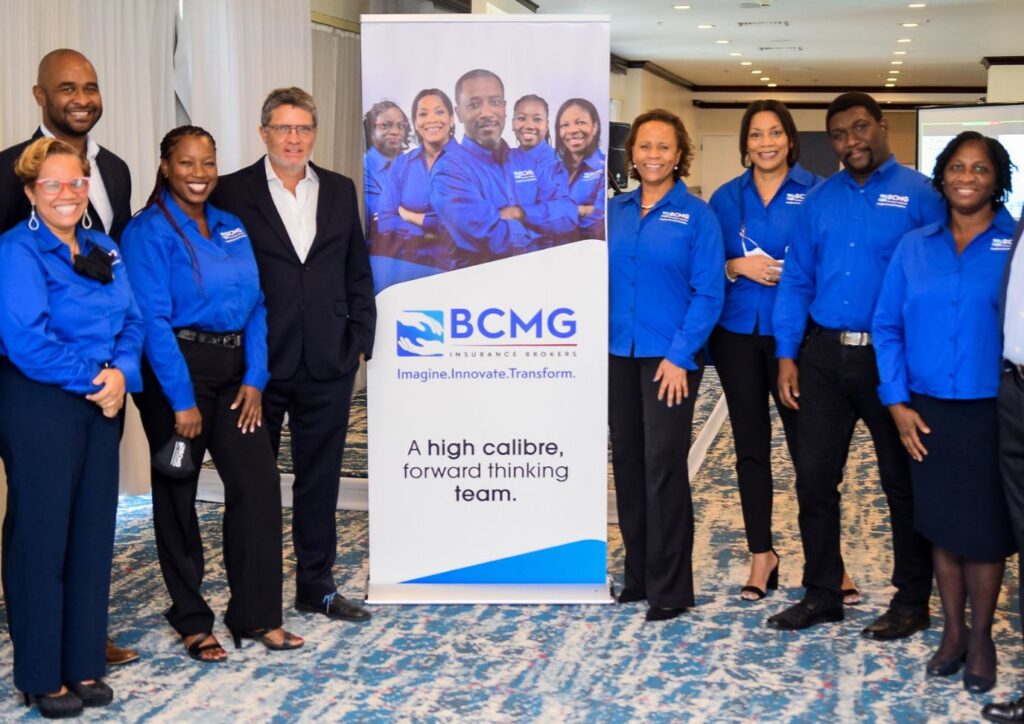

BCMG Insurance Brokers has set its sights on simplifying the onboarding and claims applications process by using technology to deliver greater efficiency, accuracy and transparency.
In embracing this digital transformation, the insurance brokerage firm aims to reduce the heavy paperwork, in-person meetings and manual processes the insurance industry has long been known for and redefine how policies are purchased, serviced and claimed.
Commenting on this shift in the company’s operation BCMG Claims Manager Pauline Campbell highlighted the changing demands of its clientele.
“The need for faster, more efficient processing and more people being exposed to First World processing times are what’s driving this change,” she said.

Campbell, who has been with BCMG since its inception, also note, “We want to be the change that our clients expect and appreciate.”
One area of rapid progress has been digital servicing. Campbell notes the usefulness of BCMG’s claims portal, which allows corporate clients to submit liability claims online, track their status and generate management reports.
Meanwhile, in the New Business Department, BCMG Senior New Business Risk Manager David Lazarus, explained that the company’s position as a bridge between customers and insurers requires that it be efficient in meeting both parties’ expectations.
“Since we, as brokers, are the link between the client and the insurer, this shift is necessary to ensure our deliverables are as efficient as possible. Our clients rely on us to ensure their policies are securely in place, and insurers trust us to place business responsibly with partners who uphold sound business practices,” he said.
To this end, Lazarus, who has been with BCMG for the past 11 years, points to the integration of HubSpot CRM.
“It streamlines onboarding and ensures a smooth, user-friendly experience. In today’s fast-paced environment, clients cannot afford delays; sometimes proving insured status within minutes makes the difference between winning a contract and losing out,” he stated.
AI in claims management
Artificial intelligence is also being woven into the firm’s operations. Campbell outlined how AI is being deployed to capture First Notice of Loss incidents from emails, then forward them to insurers, acknowledge claimants, and prompt follow-ups.

“This frees our handlers to focus on technical matters and provide the personal touch that technology cannot,” she shared.
Lazarus expounded on the value of automation.
“Claims processing is data-heavy work. AI empowers our team to turn what would usually take hours into seconds with the click of a button. That allows us to focus on our real role as brokers; managing relationships between clients and insurers,” he said
Smarter risk assessment
At the same time, technology is equally critical in transforming risk assessment.
“Drones allow us to give underwriters a detailed overview of properties, whether a small home or a manufacturing plant. With photogrammetry, we can build 3D models and take precise measurements. Thermal cameras also help identify electrical or mechanical ‘hot spots’ before they become hazards,” Lazarus pointed out.

This results in better data for underwriters, more accurate pricing, and stronger negotiating power for clients.
Rising demand for cyber protection
As more businesses operate online, demand for cyber liability insurance is growing.
“It was once the preserve of banks and tech firms, but now retailers, manufacturers and even professional services are seeing the need,” noted Lazarus.
“Ransomware and phishing scams are real threats in Jamaica.”
BCMG’s approach is education and making the information relatable. As such, Lazarus added, “We walk clients through real-life scenarios and show how coverage can protect them—from breach response to PR support. It is not about selling a policy, but about managing risk.”
Data security and trust
Beyond simplifying the process, BCMG is also focused on protecting client information.
“Convenience must not come at the expense of security,” Lazarus stressed, adding that BCMG’s protocols extend beyond compliance.
“We operate under the Data Protection Act, using encryption, secure access controls and system audits. It is about building trust and giving clients confidence their data is safe.”






Comments